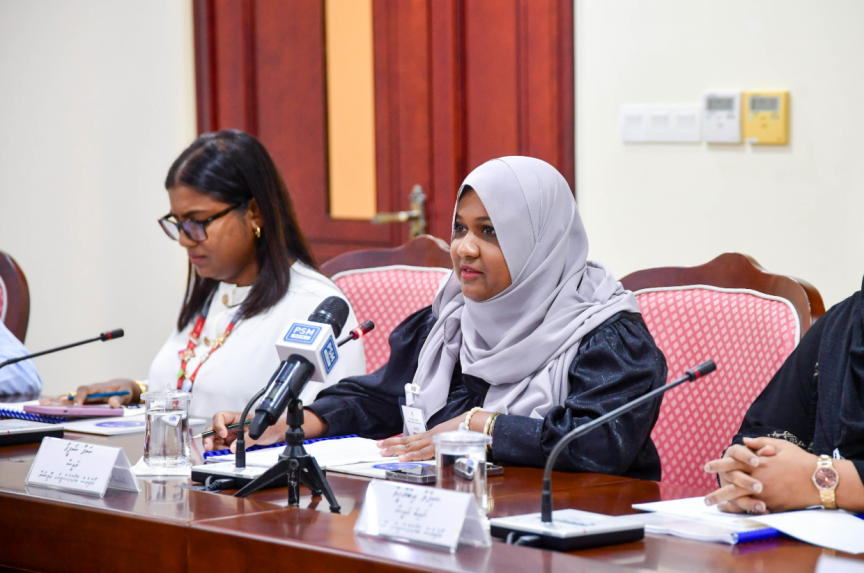
BroadCom President Safa Shafeeg speaks at the Independent Institutions Committee of Parliament. (Photo/Majlis)
The Human Rights Commission of Maldives (HRCM) has voiced strong opposition to the proposed dissolution of the Maldives Media Council (MMC) and the creation of a new, unified media commission.
This new body, outlined in a media bill currently before parliament, would absorb the responsibilities of both the MMC and the Broadcasting Commission (BroadCom).
The media bill, introduced by independently elected Thulhaadhoo MP Abdul Hannan Abubakr, gained parliamentary acceptance last Wednesday despite ongoing protests from media organizations and journalists.
Both the MMC and the Maldives Journalists Association (MJA) have also expressed their opposition, calling for the bill's repeal. Concerns have been raised by journalists and associations that the bill will impede press freedom.

Under the provisions of the proposed legislation, the MMC would be abolished, and a new commission established to regulate the media. This new commission would then oversee the combined responsibilities of the MMC and the existing BroadCom as a single entity.
The HRCM has put forth amendments to the bill, advocating for the continued existence of the Maldives Media Council Act and the Broadcasting Act as separate frameworks for regulating broadcast and print media. The commission has explicitly proposed maintaining these two systems as distinct entities.
Even if parliament ultimately decides to consolidate the two systems under one agency, the HRCM has recommended that print media and broadcasting media be regulated with necessary distinctions. The HRCM emphasized that in other democracies, broadcast media and print media typically operate under fundamentally different frameworks, and it is uncommon for a single commission to regulate both systems using the same code of conduct.
Notably, the government has expressed support for a single commission to regulate the media. The President's Office spokesperson, Heena Waleed, stated upon the bill's introduction to parliament that it would streamline media regulation by consolidating oversight.

While the bill was introduced by an independent MP who had previously presented a similar bill, opposition parties and media organizations allege government involvement. Amidst these allegations, Deputy Speaker of Parliament and PNC MP Ahmed Nazim admitted to having participated in the bill's study.
The opposition and media rights groups have articulated serious concerns that the bill will significantly curtail freedom of the press.